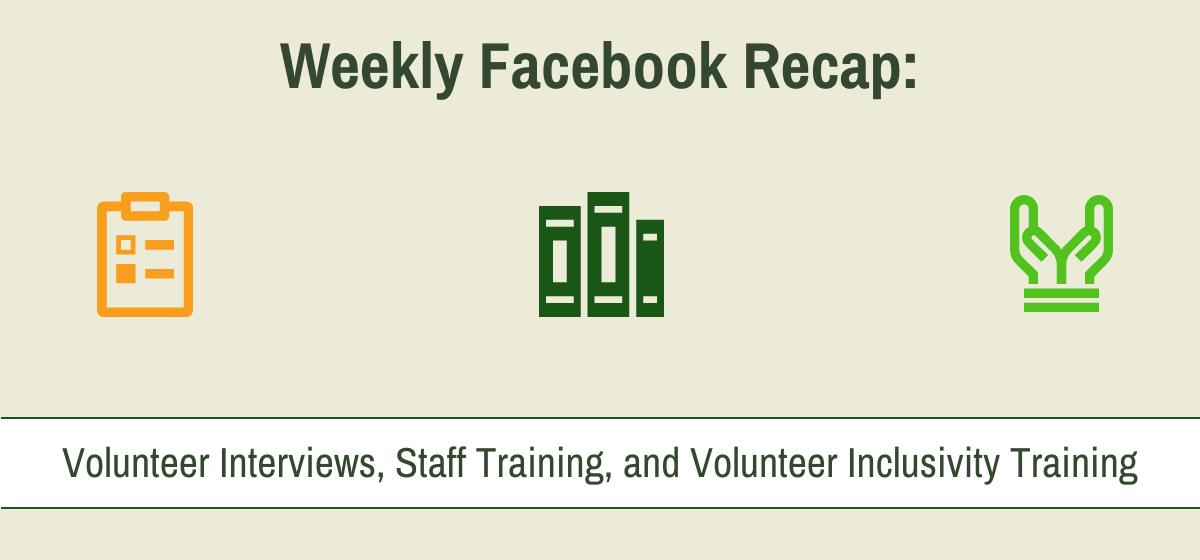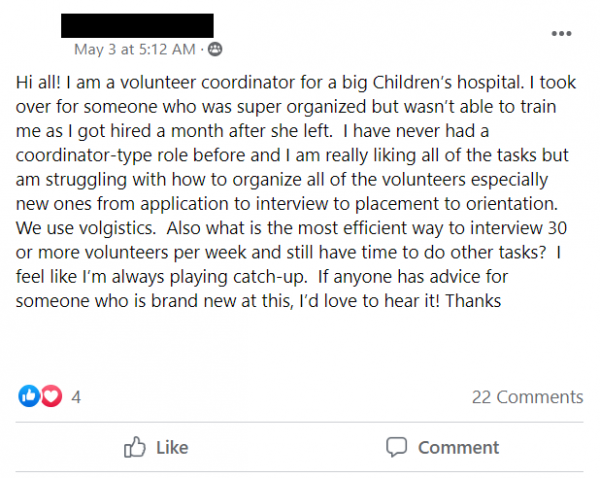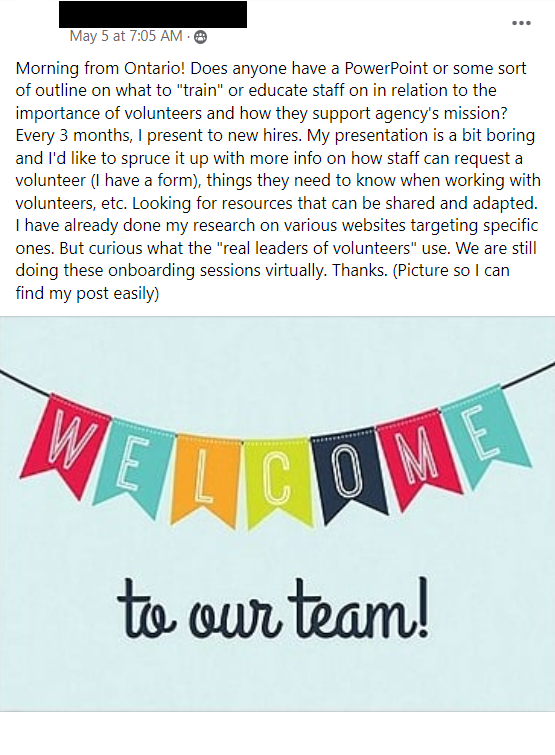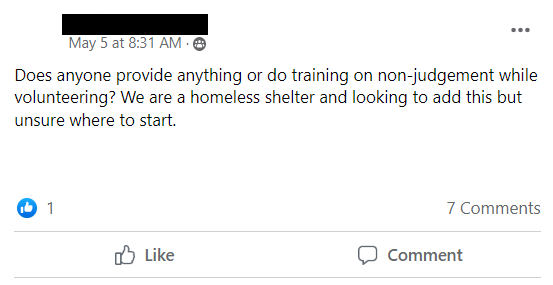
Recap for May 1st - May 8th
Thank you to everyone who contributed to the Facebook community this past week!
Interviewing Volunteers
Some organizations may require volunteer candidates to interview before volunteering with their group. This may be more common for volunteers who will work with sensitive data or populations, such as in a hospital or with seniors. When volunteer interviews are required, what is the best and most efficient way to conduct them? Our coordinator community has some suggestions:

Comments from the group
“Best advice I can give you is to create a master excel sheet that tracks each step of the process. As soon as you get an applicant, start marking what they've completed as they go through the process. Make a notes section so you can mark the date of your last point of contact with them (and what you sent/did). You'll find many applications probably drop-off at some point and it's helpful to see 'I *did* send that paperwork or try to schedule a meeting.'”
“I hold monthly informational meetings for applicants. Then I do a 15-30 minute 1.1 with those serious about volunteering once they know what's involved. Cuts down on my interviewing time.”
“You can recruit from current [volunteers] and onboard volunteers to specifically assist *you*. Start with volunteers in the program already who are leaders in their various departments and like being social and training folks: give them the overview of the interview process, your DEAI limits and best practices, and have them give the interviews. Your current volunteers know the job best anyway, and you get a break.”
Sharing the Importance of Volunteers with Staff
How can you really show paid staff the importance of volunteers in your organization? Regular presentations, reports, and engagement opportunities are just a few ways to show the value of your volunteer program. See what our coordinator community has to say!

Comments from the group
“I give new employees a pamphlet that I created about working with volunteers and then once a year, usually during summer camp training week, I present a Power Point program for new staff on how to work with volunteers.”
“Recently when presenting virtually in a company wide meeting, I shared a photo slide show of our volunteers in action while I spoke about how our organization was recognizing and show appreciation during Volunteer Appreciation Month. Everybody loved the slideshow.”
“Oh! I have not done this before in this sort of format, I've done presentations on the value of what they are doing as periodic updates. I like to include some numbers and images of the volunteers in action as well as testimonials if I can.”
Inclusivity Training for Volunteers
When you’re onboarding new volunteers, you’ll want to make sure you have a solid structure for training. A key component of this should be inclusivity and bias training, especially for volunteers who will be working with more vulnerable populations. Our community has some tips on how to include this in your training program.

Comments from the group
- “In our volunteer trainings we have touched upon this by including Diversity, Equity, and Inclusion (DEI) topics.”
- “Create a private Facebook group [or WhatsApp social group] for volunteers that they can use instead.”
- “I would lean towards doing a 3 part series... Cultural competency, sensitivity, and trauma informed... It might be good to have independent learning (pre-reading/videos) with questions due a week before the meeting and then do more of a learning circle or facilitated conversations. I often find the more people understand the less the judge.”
 Written by
Written by